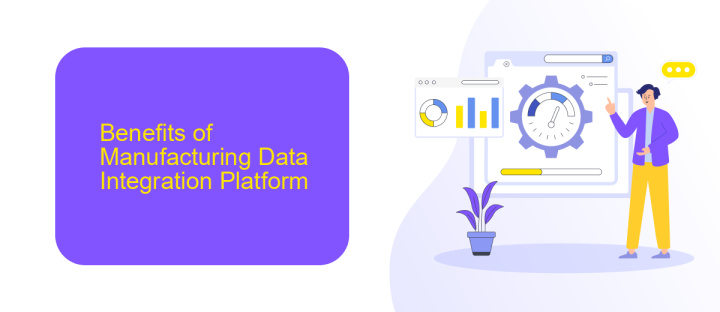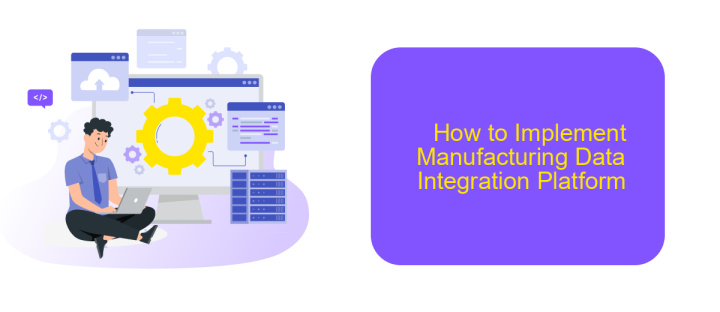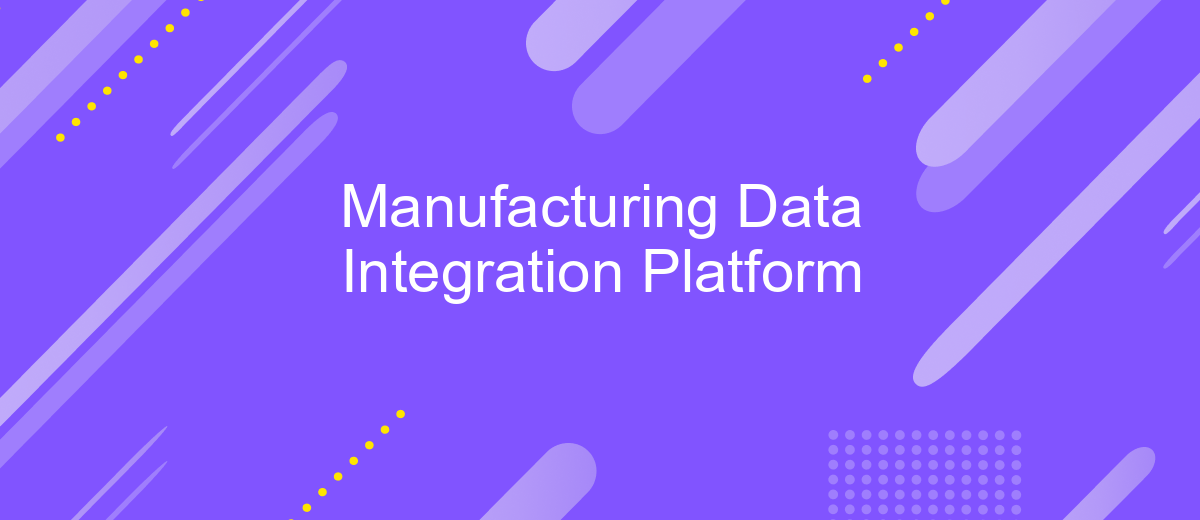Manufacturing Data Integration Platform
In today's rapidly evolving industrial landscape, the need for seamless data integration across manufacturing processes has never been more critical. A Manufacturing Data Integration Platform bridges the gap between disparate systems, enabling real-time data exchange and analytics. This platform enhances operational efficiency, reduces downtime, and drives informed decision-making, ultimately fostering a more agile and competitive manufacturing environment.
Introduction
In today’s rapidly evolving manufacturing landscape, integrating various data sources is crucial for optimizing operations and enhancing decision-making processes. A Manufacturing Data Integration Platform (MDIP) serves as a centralized hub, enabling seamless data flow between disparate systems and ensuring that critical information is accessible in real-time.
- Streamlined data collection and processing
- Enhanced operational efficiency
- Improved decision-making capabilities
- Real-time data accessibility
Platforms like ApiX-Drive offer robust solutions for setting up and managing these integrations effortlessly. ApiX-Drive allows manufacturers to connect different software applications and automate data transfers without requiring extensive technical expertise. By leveraging such services, companies can significantly reduce manual data entry errors, save time, and focus on strategic initiatives that drive growth and innovation.
Benefits of Manufacturing Data Integration Platform

Implementing a Manufacturing Data Integration Platform offers numerous benefits, including enhanced operational efficiency and improved decision-making processes. By consolidating data from various sources into a single, unified platform, manufacturers can gain real-time insights and streamline their workflows. This integration reduces the time and effort required to manage disparate data systems, thereby minimizing errors and increasing productivity.
Additionally, platforms like ApiX-Drive facilitate seamless integration by providing user-friendly tools for connecting various data sources and automating data transfers. This allows manufacturers to quickly adapt to changing market demands and optimize their supply chain management. Moreover, the enhanced data visibility and accessibility enable proactive maintenance and predictive analytics, leading to reduced downtime and cost savings. Overall, a Manufacturing Data Integration Platform is essential for achieving a competitive edge in the industry.
Key Features of Manufacturing Data Integration Platform

The Manufacturing Data Integration Platform is designed to streamline and enhance data management processes within manufacturing environments. It ensures seamless integration of data from various sources, facilitating real-time analytics and decision-making.
- Real-Time Data Integration: The platform supports real-time data integration, allowing manufacturers to access up-to-date information from multiple systems.
- Scalability: It is built to scale with the growing data needs of manufacturing operations, ensuring consistent performance regardless of data volume.
- Data Transformation: The platform includes robust tools for data transformation, enabling the conversion of raw data into actionable insights.
- API Connectivity: With services like ApiX-Drive, the platform offers extensive API connectivity, simplifying the integration process with various third-party applications.
- Security and Compliance: It ensures data security and compliance with industry standards, protecting sensitive manufacturing data.
- Customizable Dashboards: Users can create customizable dashboards to visualize data and monitor key performance indicators (KPIs) effectively.
By leveraging these key features, the Manufacturing Data Integration Platform empowers manufacturers to optimize their operations, improve productivity, and drive innovation through data-driven decision-making.
How to Implement Manufacturing Data Integration Platform

Implementing a Manufacturing Data Integration Platform involves several critical steps to ensure seamless data flow and operational efficiency. Start by defining your integration goals and identifying the key data sources within your manufacturing processes. This includes machinery data, ERP systems, and quality control metrics.
Next, choose a robust integration tool that can handle diverse data formats and protocols. ApiX-Drive is an excellent option, offering a user-friendly interface and extensive compatibility with various data sources. It simplifies the integration process, reducing the need for extensive coding and technical expertise.
- Define integration objectives and key data sources
- Select an integration tool like ApiX-Drive
- Map out data flow and transformation requirements
- Configure data connections and automate workflows
- Test and validate the integration setup
After setting up the platform, continuously monitor and optimize the data flows to ensure accuracy and efficiency. Regularly update the integration tool and adjust configurations as your manufacturing processes evolve. This proactive approach will help maintain seamless data integration and drive better decision-making.
Conclusion
The Manufacturing Data Integration Platform represents a significant advancement in the way manufacturing data is managed and utilized. By seamlessly integrating various data sources and systems, it offers a unified view that enhances decision-making, operational efficiency, and overall productivity. The platform's ability to handle vast amounts of data in real-time ensures that manufacturers can quickly adapt to changing conditions and make informed decisions that drive their business forward.
Moreover, tools like ApiX-Drive provide invaluable support in setting up these integrations, making the process more streamlined and less time-consuming. ApiX-Drive's user-friendly interface and robust capabilities allow manufacturers to connect disparate systems effortlessly, ensuring that data flows smoothly across the organization. As the manufacturing industry continues to evolve, leveraging such platforms and services will be crucial in maintaining a competitive edge and achieving long-term success.
FAQ
What is a Manufacturing Data Integration Platform?
Why is data integration important in manufacturing?
What are the common challenges in manufacturing data integration?
How can ApiX-Drive help in automating data integration in manufacturing?
What are the key features to look for in a Manufacturing Data Integration Platform?
Time is the most valuable resource for business today. Almost half of it is wasted on routine tasks. Your employees are constantly forced to perform monotonous tasks that are difficult to classify as important and specialized. You can leave everything as it is by hiring additional employees, or you can automate most of the business processes using the ApiX-Drive online connector to get rid of unnecessary time and money expenses once and for all. The choice is yours!

